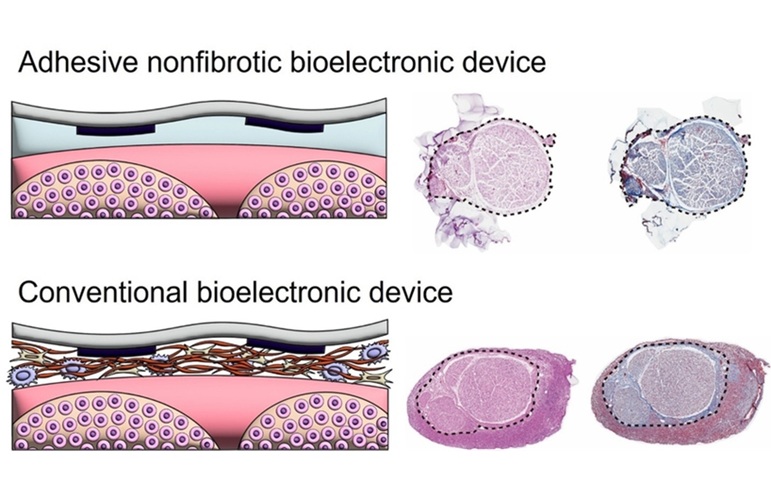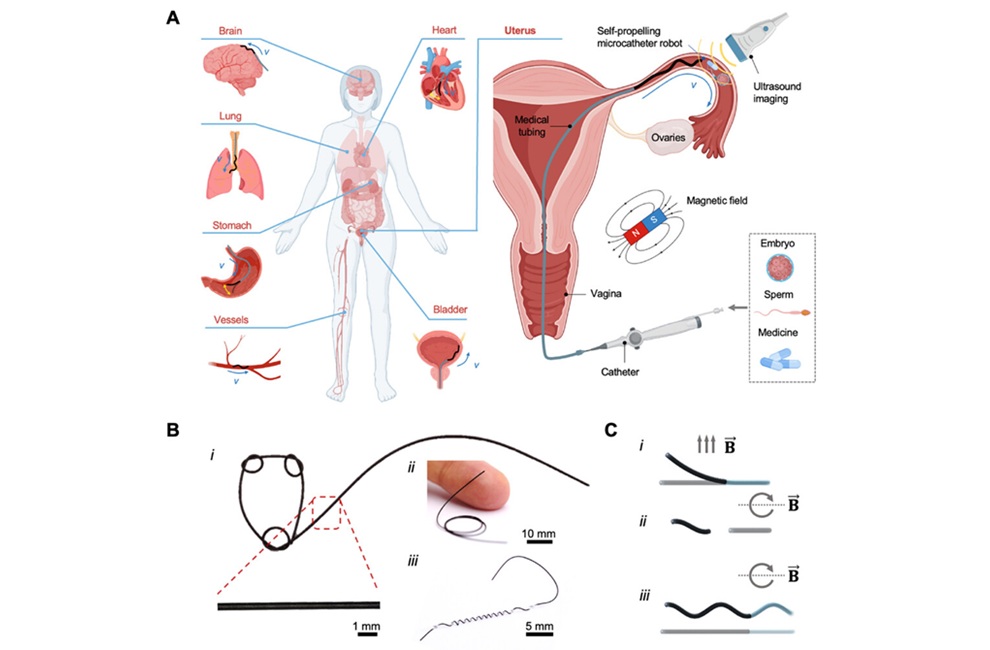Critically Ill COVID-19 Patients Improve Significantly After Receiving Experimental Heart Cell Therapy
|
By HospiMedica International staff writers Posted on 16 May 2020 |
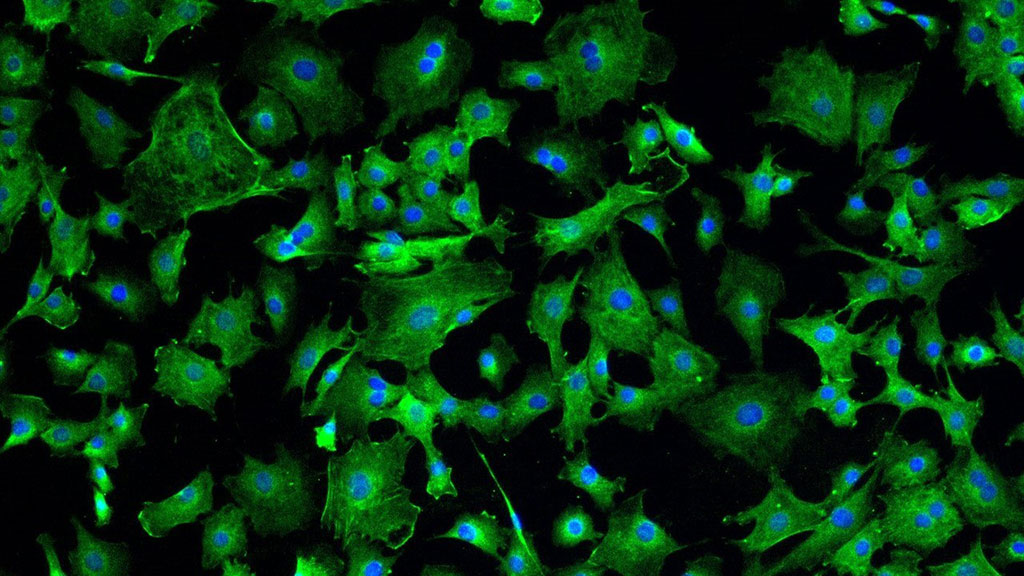
Image: Cardiosphere-derived cells (CDCs) (Photo courtesy of Cedars-Sinai)
Critically ill COVID-19 (coronavirus) patients at Cedars-Sinai (New York, NY, USA) improved significantly after receiving an experimental therapeutic designed to reduce inflammation.
The therapeutic, known as CAP-1002, contains cardiosphere-derived cells (CDCs) that are grown in the laboratory from human heart tissues. Previous preclinical and clinical research showed that the CDCs, originally created by a process developed to treat heart failure, can help the whole body. The experimental treatment involved six COVID-19 patients who suffered from respiratory failure and required supplemental oxygen prior to receiving the cell therapy; five were on ventilators. Within four days after infusion with CAP-1002, four patients were able to breathe without respiratory support, and within less than three weeks, the four were well enough to be discharged from the hospital. None of the patients showed adverse effects from the infusions, and none died during the study period. By comparison, six patients died among a group of 34 comparable COVID-19 patients who were treated in Cedars-Sinai's intensive care unit around the same time but who did not receive the cell therapy.
Investigators have emphasized that the patient outcomes, while encouraging, are not sufficient to prove that CAP-1002 is safe and effective for treating COVID-19 as this was not a clinical trial with a control group. The team now plans to conduct a future clinical trial that would involve dividing a larger number of coronavirus patients into two groups: those who receive the therapy and a control who do not. The team would then compare the outcome for the two groups. The team believes that f the CDCs counteract immune overreaction in coronavirus patients, the cells potentially could help prevent or treat two other life-threatening conditions that often develop during the course of the disease: acute respiratory distress and inflammation of the heart muscle, known as myocarditis.
“Previous studies provided strong evidence that CDCs have intense benefits for the immune system and inflammation in a number of diseases. They accomplish this by secreting exosomes— nanoscale vesicles with a variety of active contents that travel widely throughout the body,” said Eduardo Marbán, MD, PhD, executive director, Smidt Heart Institute, who believes that this anti-inflammatory effect could be a critical boost for coronavirus patients.
Related Links:
Cedars-Sinai
The therapeutic, known as CAP-1002, contains cardiosphere-derived cells (CDCs) that are grown in the laboratory from human heart tissues. Previous preclinical and clinical research showed that the CDCs, originally created by a process developed to treat heart failure, can help the whole body. The experimental treatment involved six COVID-19 patients who suffered from respiratory failure and required supplemental oxygen prior to receiving the cell therapy; five were on ventilators. Within four days after infusion with CAP-1002, four patients were able to breathe without respiratory support, and within less than three weeks, the four were well enough to be discharged from the hospital. None of the patients showed adverse effects from the infusions, and none died during the study period. By comparison, six patients died among a group of 34 comparable COVID-19 patients who were treated in Cedars-Sinai's intensive care unit around the same time but who did not receive the cell therapy.
Investigators have emphasized that the patient outcomes, while encouraging, are not sufficient to prove that CAP-1002 is safe and effective for treating COVID-19 as this was not a clinical trial with a control group. The team now plans to conduct a future clinical trial that would involve dividing a larger number of coronavirus patients into two groups: those who receive the therapy and a control who do not. The team would then compare the outcome for the two groups. The team believes that f the CDCs counteract immune overreaction in coronavirus patients, the cells potentially could help prevent or treat two other life-threatening conditions that often develop during the course of the disease: acute respiratory distress and inflammation of the heart muscle, known as myocarditis.
“Previous studies provided strong evidence that CDCs have intense benefits for the immune system and inflammation in a number of diseases. They accomplish this by secreting exosomes— nanoscale vesicles with a variety of active contents that travel widely throughout the body,” said Eduardo Marbán, MD, PhD, executive director, Smidt Heart Institute, who believes that this anti-inflammatory effect could be a critical boost for coronavirus patients.
Related Links:
Cedars-Sinai
Latest COVID-19 News
- Low-Cost System Detects SARS-CoV-2 Virus in Hospital Air Using High-Tech Bubbles
- World's First Inhalable COVID-19 Vaccine Approved in China
- COVID-19 Vaccine Patch Fights SARS-CoV-2 Variants Better than Needles
- Blood Viscosity Testing Can Predict Risk of Death in Hospitalized COVID-19 Patients
- ‘Covid Computer’ Uses AI to Detect COVID-19 from Chest CT Scans
- MRI Lung-Imaging Technique Shows Cause of Long-COVID Symptoms
- Chest CT Scans of COVID-19 Patients Could Help Distinguish Between SARS-CoV-2 Variants
- Specialized MRI Detects Lung Abnormalities in Non-Hospitalized Long COVID Patients
- AI Algorithm Identifies Hospitalized Patients at Highest Risk of Dying From COVID-19
- Sweat Sensor Detects Key Biomarkers That Provide Early Warning of COVID-19 and Flu
- Study Assesses Impact of COVID-19 on Ventilation/Perfusion Scintigraphy
- CT Imaging Study Finds Vaccination Reduces Risk of COVID-19 Associated Pulmonary Embolism
- Third Day in Hospital a ‘Tipping Point’ in Severity of COVID-19 Pneumonia
- Longer Interval Between COVID-19 Vaccines Generates Up to Nine Times as Many Antibodies
- AI Model for Monitoring COVID-19 Predicts Mortality Within First 30 Days of Admission
- AI Predicts COVID Prognosis at Near-Expert Level Based Off CT Scans
Channels
Critical Care
view channel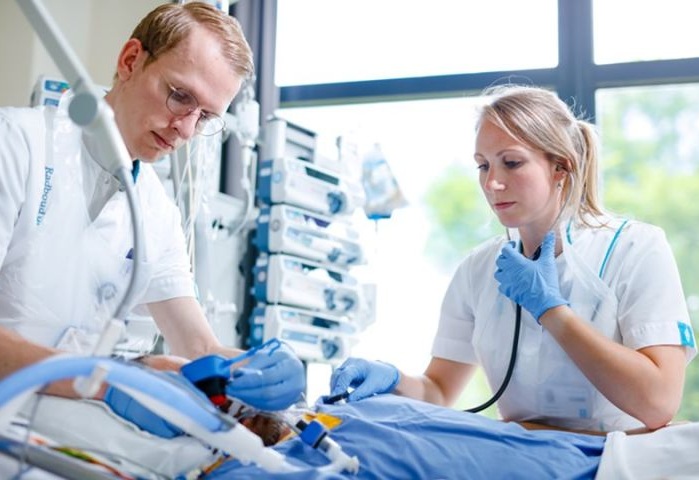
Precision Approach Improves Immunotherapy Effectiveness for ICU Patients with Sepsis
Sepsis occurs when the immune system responds abnormally to an infection, often triggering life-threatening organ failure. Despite affecting around 49 million people globally each year and causing approximately... Read more
Soft Robots Could Donate Their Heart to Humans
Heart failure is a growing global health burden, and existing artificial hearts and mechanical pumps often fall short of long-term clinical needs. Many current devices rely on rigid components and complex... Read moreSurgical Techniques
view channel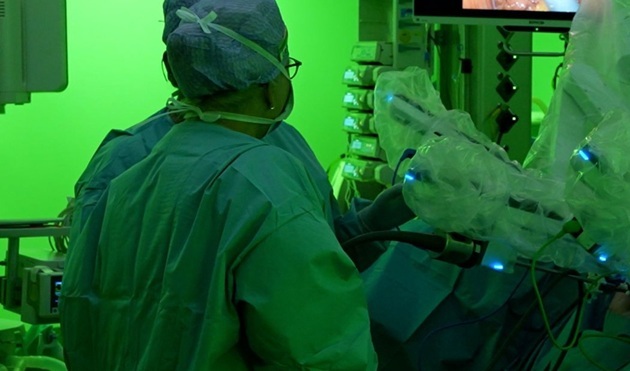
Minimally Invasive Surgery Proven Safe and Effective for Complex ‘Whipple’ Procedure
Tumors of the pancreatic head often require a highly complex operation known as pancreatoduodenectomy or the Whipple procedure. This surgery involves removing multiple structures and creating several internal... Read more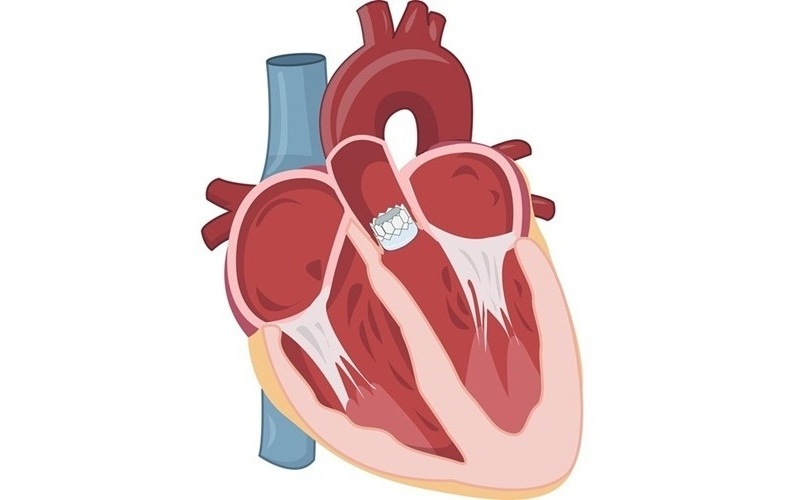
Catheter-Based Procedures Offer Less Invasive Option for Treatment of Valvular Disease
Valvular heart disease, caused by tight or leaky valves between heart chambers, affects up to 10% of older adults and leads to more than 120,000 deaths globally each year. Traditional open-heart surgery... Read morePatient Care
view channel
Revolutionary Automatic IV-Line Flushing Device to Enhance Infusion Care
More than 80% of in-hospital patients receive intravenous (IV) therapy. Every dose of IV medicine delivered in a small volume (<250 mL) infusion bag should be followed by subsequent flushing to ensure... Read more
VR Training Tool Combats Contamination of Portable Medical Equipment
Healthcare-associated infections (HAIs) impact one in every 31 patients, cause nearly 100,000 deaths each year, and cost USD 28.4 billion in direct medical expenses. Notably, up to 75% of these infections... Read more
Portable Biosensor Platform to Reduce Hospital-Acquired Infections
Approximately 4 million patients in the European Union acquire healthcare-associated infections (HAIs) or nosocomial infections each year, with around 37,000 deaths directly resulting from these infections,... Read moreFirst-Of-Its-Kind Portable Germicidal Light Technology Disinfects High-Touch Clinical Surfaces in Seconds
Reducing healthcare-acquired infections (HAIs) remains a pressing issue within global healthcare systems. In the United States alone, 1.7 million patients contract HAIs annually, leading to approximately... Read moreHealth IT
view channel
EMR-Based Tool Predicts Graft Failure After Kidney Transplant
Kidney transplantation offers patients with end-stage kidney disease longer survival and better quality of life than dialysis, yet graft failure remains a major challenge. Although a successful transplant... Read more
Printable Molecule-Selective Nanoparticles Enable Mass Production of Wearable Biosensors
The future of medicine is likely to focus on the personalization of healthcare—understanding exactly what an individual requires and delivering the appropriate combination of nutrients, metabolites, and... Read moreBusiness
view channel
Philips and Masimo Partner to Advance Patient Monitoring Measurement Technologies
Royal Philips (Amsterdam, Netherlands) and Masimo (Irvine, California, USA) have renewed their multi-year strategic collaboration, combining Philips’ expertise in patient monitoring with Masimo’s noninvasive... Read more
B. Braun Acquires Digital Microsurgery Company True Digital Surgery
The high-end microsurgery market in neurosurgery, spine, and ENT is undergoing a significant transformation. Traditional analog microscopes are giving way to digital exoscopes, which provide improved visualization,... Read more
CMEF 2025 to Promote Holistic and High-Quality Development of Medical and Health Industry
The 92nd China International Medical Equipment Fair (CMEF 2025) Autumn Exhibition is scheduled to be held from September 26 to 29 at the China Import and Export Fair Complex (Canton Fair Complex) in Guangzhou.... Read more








.jpg)




